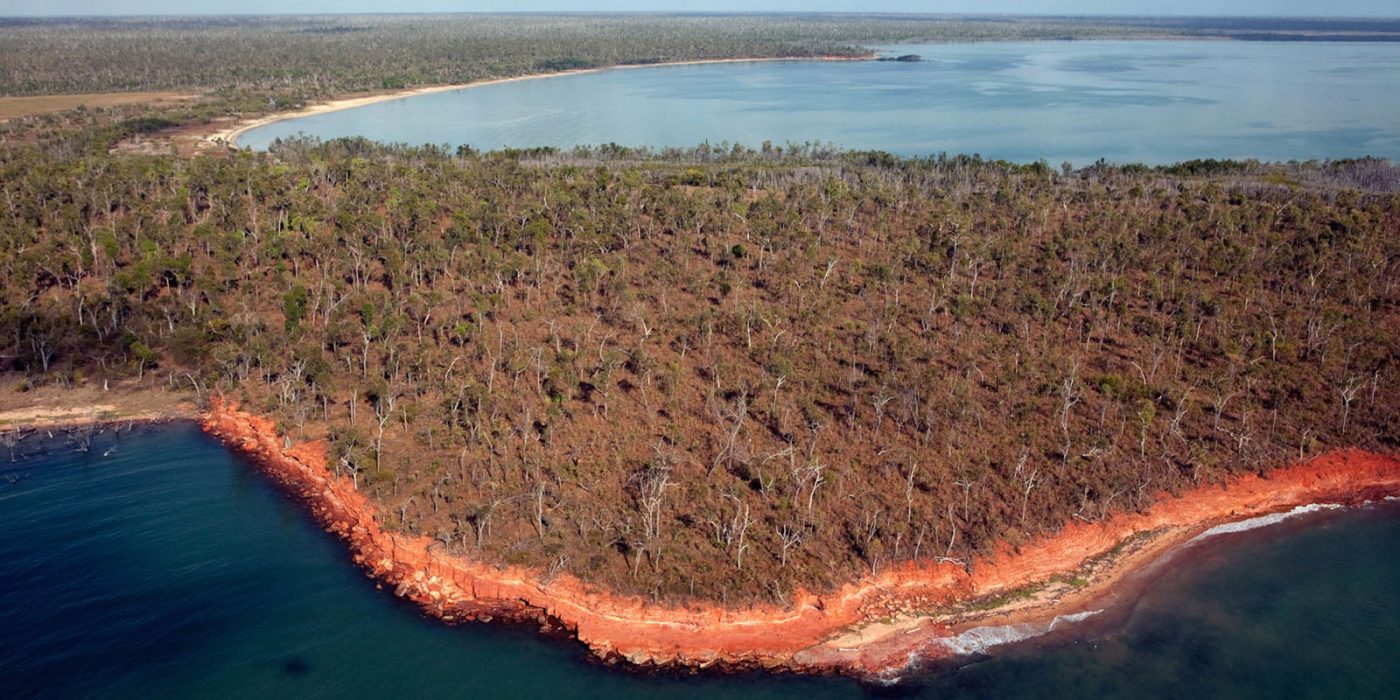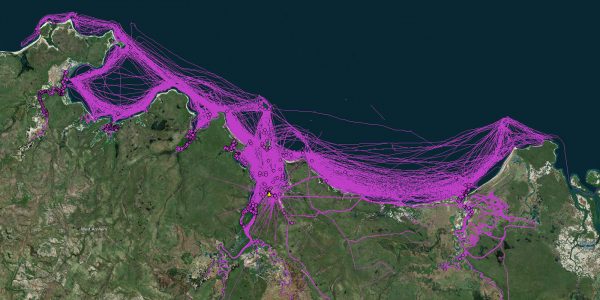
The Bawinanga Rangers work closely with landowners (people who have inherited country from their father) and djungkay (people who have inherited management responsibilities to their mother’s country). We represent and aim to meet their aspirations for the management of their land and sea country.
We aim to keep the land and sea country and cultures and languages in our region strong through appropriate use and management. We are achieving this through proper employment and career pathways, sustainable enterprise development opportunities on our country, and by working with many partners for the benefit of all.
Looking after country
Together with the right landowners and djungkay, we identify healthy and unhealthy parts of our sea and land country, decide how we are going to tackle the many things that threaten the ecological and cultural values of our country, and analyse and understand what level of success we are having and why.

Our operational activities are framed by broad and inclusive conservation targets. The conservation targets enable us to plan and implement a coordinated response to the identified threats to our country and to track our progress in a meaningful way.
For each of our five conservation targets, we monitor the health status and set suitable indicators and management goals, and we prioritise strategies that minimise and mitigate the impact of threats identified as high risks.
Conservation targets
- Sea and coast
- Rivers and wetlands
- Culturally important places
- Culturally important plants and animals
- Healthy fire
Learning on Country program
Djelk Rangers have for many years supported a pioneering Junior Ranger program in partnership with Maningrida Community Education Centre. In 2013, this formally transitioned into the Learning on Country program. The program is preparing the next generation of landowners and djungkay to care for their estates and improve students’ opportunities to build a rewarding and satisfying career as a Bawinanga ranger.
Learning on Country integrates school-based learning and on-country learning. The program places a strong emphasis on intergenerational and two-way (both-way) learning, integrating the expertise, knowledge and cultural practices of traditional landowners with western science. It also aims to improve school attendance and completion. Bawinanga works with students across many levels of Maningrida College and we offer senior students work experience and internships. In turn, Djelk rangers and our landowners share their expertise, and use and build their leadership skills, validating within the community the important work that we do.
Commercial services
Our wildlife enterprise activities are sustainable commercial developments involving renewable resources with economic and socio-cultural benefits for Bawinanga Rangers, landowners and djungkay. Our current enterprise activities are focussed on our Crocodile Hatchery Program, which complies with both cultural laws and the NT Government’s crocodile management program.
Saltwater crocodiles are a culturally significant species to some landowners and clans in our region. Non-Indigenous commercial hunters are said to have hunted the animals almost to extinction in the Northern Territory by the late 1960s, and a ban on the hunting of crocodiles was legislated in 1971.
Crocodile Hatchery Program
Saltwater crocodiles nest primarily during the wet season, which is usually from November to May. The female lays an average of 50 eggs, which hatch from 75 days onwards. In the wild, only about ¼ of a clutch of eggs tends to hatch.
Bawinanga Rangers have been harvesting crocodile eggs from our river systems since 1990. Our permit from the Northern Land Council allows us to harvest up to 2300 eggs per year from specified zones within the Djelk IPA. The Bawinanga women ranger team has responsibility for our Crocodile Hatchery Program. The Rangers artificially incubate the harvested eggs, caring for them until they hatch. A proportion of the young crocodile hatchlings are sold to our commercial clients and the remainder are kept to grow out over 9–12 months. We sell the juvenile crocodiles to clients for resale to domestic and international clients.
We have a long-standing partnership and history of knowledge exchange with Wildlife Harvesting NT (Grahame and Giovanna Webb), and we sell crocodile hatchlings to Crocodylus Park, and Crocosaurus Cove (Wildlife Management International: Mick Burns and Craig Moore).
Problem crocodile removal
Under our Problem Crocodile Permit we can remove 20 saltwater crocodiles per year at the request of landowners in the Djelk IPA to make their country safer. We are permitted to process the problem crocodiles’ skins and skulls for commercial sale. All profits are reinvested in the management program.
